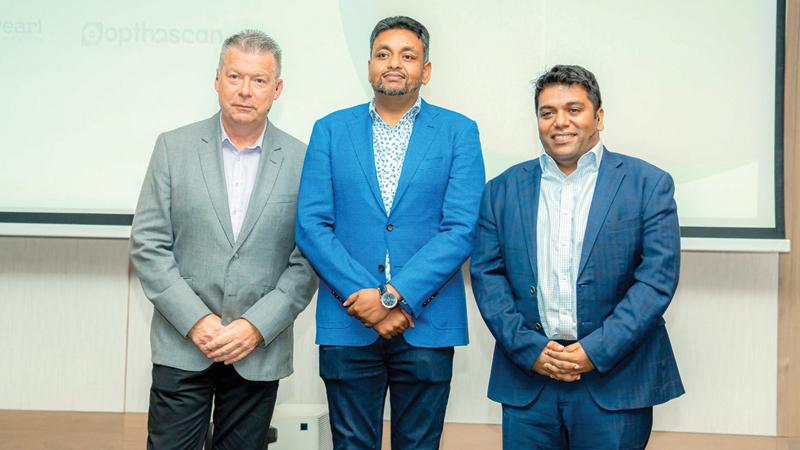
Sri Lanka become the first South Asian country to introduce Artificial intelligence (Al) powered ‘Early Cancer Detection Technology’.
Over the past years, the incidence of cancer in Sri Lanka has surged from 13,372 cases in 2005 to a staggering 31,848 cases in 2019, marking a significant surge of 138%. Globally cancer incidences have risen at similar rates.
Early detection yields more efficacious treatment outcomes and improves recovery prospects and Opthascan for the first time in South Asia is introducing their pioneering technology which harnesses the power of Artificial Intelligence and Machine Learning to detect various forms of cancer non-invasively.
By merely analysing a photograph of a patient’s iris, the product produces an accuracy rate of over 98% in diagnosing internal cancers including, but not limited to, lung, prostate, breast, uterine and cervical cancers.
Herein emerges the promising innovation of Opthascan, a newly unveiled non-invasive screening application for several internal cancers.
Having gone through clinical trials, Opthascan garners approvals and accreditation from the European Union. The solution is used in four European countries and in parts of Africa. The solution is also GDPR compliant, ensuring the integrity of data and robust measures which makes it impervious to breaches.
At present, Opthascan is used in Sri Lanka, striving to democratise this transformative technology within Sri Lanka with the help of the Government.
Representative of Opthascan, Bren Sambunathan said: “Opthascan ushers in a new era of hope, where cutting-edge technology aligns with the collective determination to alleviate the impact of cancer on our society.”
Through Opthascan’s unwavering commitment to early detection and its consequential transformative potential, the future holds promise in the pursuit of a healthier, cancer-resilient Sri Lanka.
